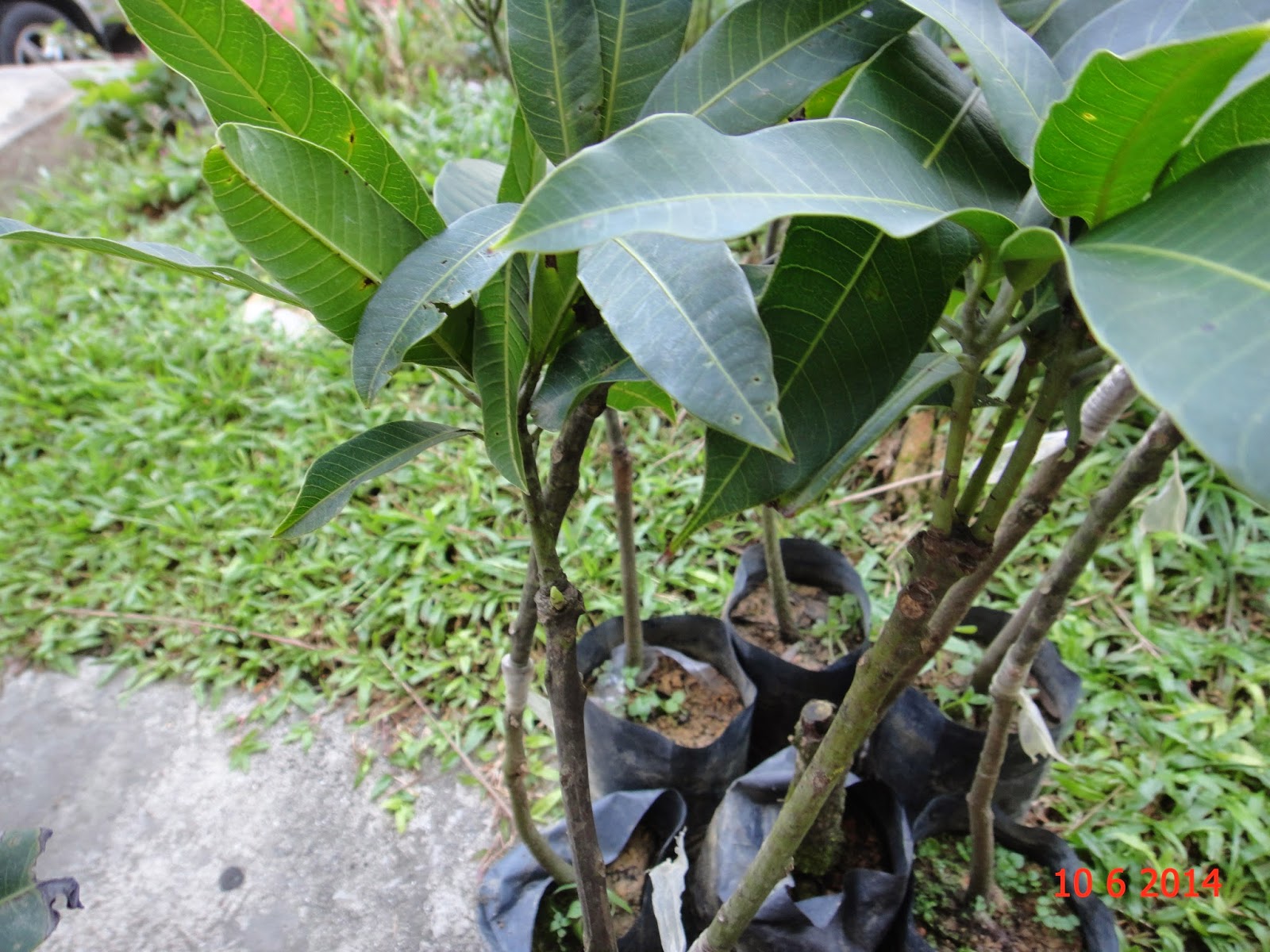February, being the shortest month, leave much to be done. I had only about 16 days in our farm for this month. The weather is also bringing heavy rain with super hot afternoon and very cold nights, which disrupted our schedule.
 |
| Bagged all the previously germinated seeds from December / January. |
Prepared Avocado seedling and transfer all of them into poly bags. Managed to collect more quality seeds. Preparing to germinate them to create more rootstock.
 |
| Managed to collect these seeds when I was about to give up. The scions are for grafting the 10 plants. |
Organize the grafted Avocados. Shutting down my ICU as shall be away for a month. Shifting back all my patients to the nursery for logistic reason. Shall have to make more drainage holes on the bags.
 |
| "Amulance" awaiting. |
 |
| These grafts had 'taken' but the scions are dying from the top. |
 |
| Snipped off the died parts and re-seal with wax. |
 |
| Didn't do a good job, a small edge was not sealed properly, causing the scion to dry further. It's a goner. |
 |
| Thank you, at least I got 1. |
Was thinking there may be other methods of cloning. Considering air layering and cuttings. As the fruiting trees is large, I feel that it's rather difficult to do air layering. Also my previous experience wasn't good. Fear of heights and falling (ladder on soft ground) is also another factor. Only found a handful of article on propagation Avocado through cuttings. Successful rate are pretty low, but I think may be worthwhile to try. As at the moment after grafting 10 plants, I don't have anymore graft-able rootstock. Shall try to slot in after all my schedule, if not then on April.
Harvested a Jackfruit from our mother tree of J31, estimated to be about 10 ~ 12 kg. Feed back is that the fruit doesn't taste good. Fibrous, not crunchy and not sweet enough. Even though am using it to practice, am deciding to stop cloning it. Have about 50 trees of J31 and J29.
The 4 J33 Tekam Yellow is still too young to contribute scion. So far only managed to clone 2. I feel the scion is too young and do not process the reserve to 'take'. Shall let them grow for the time being and access them again in April. The surviving CJ3 and J35 Mastura (made a mistake of labeling this as J37) is struggling but after patience care I think they shall survive.
 |
| CJ3 and Mastura, shall be transferring back to the nursery. |
Manage to graft some Jackfruit using scions from a neighbor's tree.
On the Mango, there was this plant that refuse to bud even though it had 'took'. Gave it a bend to force it to bud. Yes, it bud 3 days later.
 |
| Force a bend, to force a bud. |
 |
Bud begin to grow 3 days later. New leafs has appeared by now.
Another 7 days latter. |
Mango, scions were taken from our plantation, We have 2 fruiting trees, 1 Apple Mango and a Philippine Mango, Manila Super Sweet.
 |
| Manila Super Sweet, size of this unripe fruit is about 7 ~ 8 inches. |
|
Sent in 50 Soursop, 13 Mango, 9 Avocado and 12 non grafted Jackfruit from CML and 18 grafted Jackfruit for field planting.
 |
| On Transit, awaiting field planting. |
Managed to organize the nursery before I go. My prized procession, Jackfruit.
 |
| Artocarpus Cultivar CJ3, Mastura & Tekam Yellow. |
I had left the best spot in the nursery for the Pomegranate, and S. Avocados. This spot has 70% shaded morning sun and 90% shaded afternoon sun.
 |
| Pomegranate, #Avocado Anna, Betty & Cat. |
Prepared some seedling of Soursop.
 |
| Soursop Seedlings. |
Rootstock for Mango & Jackfruit.
More seeds to germinate #Avocado.
 |
| Avocado rootstock, waiting for it to grow to graft-able size. |
It's a pretty exhaustive trip, as after the long Chinese New Year holodays, I came back and started on a relax pace. As my leaving date draw nearer, I need to do more to complete my nursery. Did all I could for this trip and thank you for the progress made. Leaving for home in the morning, then off to vacation in Turkey with my lovely wife.
 Is Agrosol suitable for trees?
Is Agrosol suitable for trees?




















































